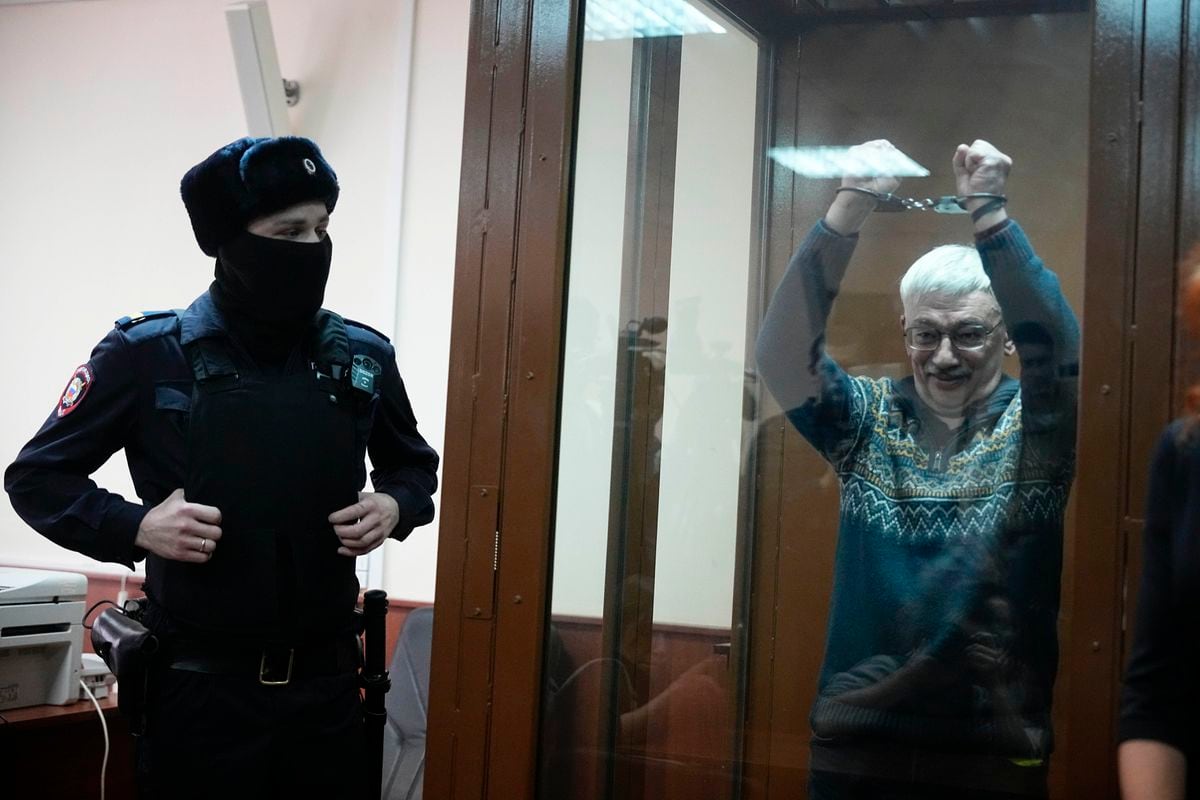Reading the article
Gorbachev and the failures of the 20th century,
by the historian José Álvarez Junco, which appeared on September 17 in this newspaper, has produced a certain surprise in several people around me.
In my case, going a little further than that feeling, it has given rise to the following reflections, expression for this time of some disagreements with whom he is above all a teacher and to a great extent a friend.
The vehement tone as well as the courageous character of the historian's writing is noteworthy.
His plea for democracy is valuable and necessary.
However, his recourse to twentieth-century historical experience is questionable on several counts.
A few nuances are necessary, even in a piece of writing that voluntarily describes the facts “succinctly”, in his words.
Communism and fascism are the examples of totalitarianism —a term that Álvarez Junco avoids writing— in the 20th century.
They share many features but also significant differences.
If both were enemies of democracy, they were not in equal measure, neither in time nor in form.
When the Marxism that sustains communism emerged in the 19th century, democracy was a minority aspiration with very limited content, so the objective of the communist utopia of overthrowing bourgeois society and replacing it with a classless society left aside the democracy, one more bourgeois political superstructure.
Achieving that communist political objective, by the way, was not going to happen “overnight”, as Álvarez Junco affirms.
Rather it was a distant goal, all the more distant the further the communist movement went into history, especially in the 20th century.
In this time, yes, the communism of Marxist-Leninist inspiration declares itself decidedly an enemy of the democratic idea, which does not prevent, however,
Fascist totalitarianism, for its part, a product of the 20th century in all its national versions, was born with the declared aspiration to destroy democracy, even using its weapons.
Once in power, his necessary will to expand leads him to war against races and peoples considered inferior and against weak systems, such as democracies.
This will be the ultimate cause of their "downfall."
Therefore, its "failure", in the benign terms of Álvarez Junco, is actually an unmitigated defeat, the one that occurred in World War II, the greatest conflagration in history, caused precisely by fascism.
The "failure" of Soviet communism is therefore very different.
His collapse comes from the “impossibility” of reforming, Álvarez Junco rightly says, regarding the failed attempts of Mikhail Gorbachev.
The intrinsic incompatibility between Soviet communism and democracy became clear in those exciting years at the end of the 20th century.
However, this Soviet history and that of its current epigones does not take into account the entire varied panorama of 20th and 21st century communism.
As is known, after 1945 the western communist parties, without renouncing their maximum programs, sustained, yes, in an increasingly rhetorical way, always acted in the national democratic parliaments and promised to come to power by exclusively democratic procedures.
The case of the PCI was the most exemplary, the one that best represented the aporia of communism.
For its part, the illegal Communist Party of Spain (PCE) renounced the violent seizure of power in 1956, based on the Declaration of National Reconciliation.
Progressively, he made his own the objective of democracy for post-Francoist Spain.
What kind of communism was this, it will be said.
western communism,
Álvarez Junco lashes out at the end of his writing against the communists still in force, scattered and isolated pieces of the current political space and against their heterogeneous supporters.
I strongly agree with the denunciation of the shameful subterfuges and circumlocutions that their defenders make use of in order not to classify regimes like the Cuban one as dictatorships, a sad surviving specter to the misfortune of its people.
Many years ago, fighters from those political-geographical spheres lamented the support for dictatorial governments by so-called Western leftists, protected by the freedoms and rights they enjoyed in their stable democracies.
However, I cannot follow the author of the article when he points to some political groups today, including ministers of the current government —most of them framed in United We Can— who continue to declare themselves communists “without blushing”, says Álvarez Junco.
This may seem good or bad, better or worse.
But, in my opinion and according to my information, these groups and these politicians have acted and have assured that they will act according to democratic methods and principles.
What more can we ask for?
This is also the triumph of democracy.
And we need it to remain so in these times of threats to democracy, of illiberal democracies and the rise of neo-fascism, revitalized historic enemies of democracy.
All forces will be essential.
Felipe Nieto
is a historian.
Subscribe to continue reading
read without limits
Keep reading
I'm already a subscriber

/cloudfront-eu-central-1.images.arcpublishing.com/prisa/MVFROY7JPLFSVYUHBGRCENETG4.jpg)
/cloudfront-eu-central-1.images.arcpublishing.com/prisa/F5VANCBUYFB3LMPKZA6B23DBJA.jpg)

/cloudfront-eu-central-1.images.arcpublishing.com/prisa/TY47FSPP2RB4BEVHHZRVRO4QLY.jpg)




